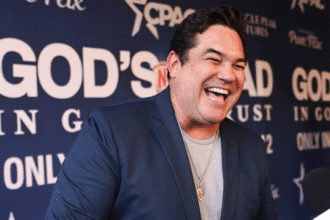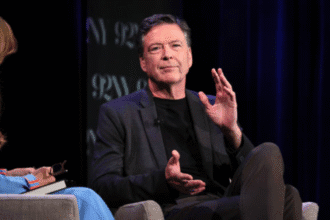Rising Middle Eastern tensions lead to worries regarding Trump’s Iran approach. Supporting Israel, avoiding a more general war, and pleasing his political base all have to be balanced by the previous president. His choices span cautious diplomacy or even a total pullout from strong military backing. Every road has important ramifications for the area as well as for the U.S. world reputation. Under increasing pressure from domestic groups, opponents, and allies, Trump’s next step may define American foreign policy in the Middle East.
- Will Trump Escalate Under Netanyahu’s Pressure?
- Can Trump stay in a reasonable middle ground?
- Will the domestic MAGA voices affect a pullback?
- Does Trump’s approach still allow for diplomatic room?
- How Might Global Dynamics Affect Trump’s Next Action?
- What Possible Results Might Trump’s Strategy produce?
- Can Trump Guide This Crisis Without Giving Up Control?
Will Trump Escalate Under Netanyahu’s Pressure?
Israeli Prime Minister Netanyahu has claimed U.S. cooperation in Israel’s most recent strikes on Iran. Trump advocates a deal-based strategy to stop Iran from gaining nuclear weapons, but his latest comments point to ambivalence. He cautioned Iran of more severe reprisals via Israel and said that such strikes may either help or destroy a possible agreement. This unpredictability fits the “madman” theory of diplomacy, which holds that erratic behavior forces rivals into negotiations.
Netanyahu is still advocating military action, and bunker-busters bombs aimed against Iran’s subterranean locations such as Fordow are apparently under consideration Strongly advocating Trump to act, hardline Republicans are also But if Iran has earlier agreed to start negotiations, this action runs the danger of bringing the United States into a more general regional confrontation.
Can Trump stay in a reasonable middle ground?
Trump has thus openly claimed that the United States is not supporting Israeli strikes. Still, American navy vessels and missile batteries are stationed to guard Israel. Certain experts advise caution and encourage Trump not to let any more escalation take place.
Trump’s Iran approach has hazards. Escalation could lead to a blunder defining legacy. Furthermore, any mistake might set off Iranian missile strikes on American interests in the area. Reports show Trump privately disagreed with Israel’s attempt to attack Iran’s Supreme Leader.
Trump’s present posture seems to be on a tightrope: showing military support for Israel without openly joining the fighting. Still unknown, though, how long this middle ground can be kept.
Will the domestic MAGA voices affect a pullback?
Trump’s home political base is a strong internal influence forming his Iran approach. Although most Republicans support Israel, some powerful MAGA movement members object to direct American engagement in the conflict.
Critics have asked why, against Trump’s “America First” pledge, America is running the danger of starting yet another Middle Eastern conflict. Prominent voices like Tucker Carlson have demanded a total disassociation from Israel’s conduct, contending that Trump supporters want policies that give homeland interests top priority.
This internal pressure is not small at all. Reflecting this viewpoint, Representative Marjorie Taylor Greene said that complete participation in the battle runs against MAGA values. Trump has responded on social media, stressing that the United States did not participate in Israeli strikes. He even accompanied Russian President Putin in public, advocating peace.
The MAGA point of view calls for caution, especially if American military personnel are in danger. Any American death might intensify isolationist attitudes, which would drive Trump to keep the United States even further away from the fighting.
Does Trump’s approach still allow for diplomatic room?
Diplomacy still seems on the agenda even with growing hostilities. A sixth session of nuclear negotiations set for Oman with Trump’s envoy was scheduled before the most recent escalation. Those preparations have now been shelved, though.
Trump argues that his Iran approach incorporates a diplomatic answer. Still, his contradictory behavior and messages could throw him off this road. Unless Trump acts consistently, Israel’s belligerent posture and the MAGA base’s drive for non-involvement offer little space for fruitful diplomacy.
The secret is defining the red lines. Is the lone dealbreaker Iran’s nuclear ambition represents, or will the U.S. stance change depending on military developments? Trump’s contradictory voice perplexes both supporters and rivals equally. Here is the link to our article on the Border Policy Clash
How Might Global Dynamics Affect Trump’s Next Action?
Beyond internal affairs, world responses also have a great impact. A greater Middle Eastern conflict worries many foreign leaders. The G7 has urged de-escalation, and European allies are cautious about another U.S.-led conflict in the area.
The legacy of Trump’s foreign policy is in line. The world waits to see whether he will turn to significant diplomacy or double down on pressure strategies. Every decision has great ramifications for world stability.
Even indirect help to Israel might have a disastrous effect, as Iran warns that U.S. bases could be targeted should engagement rise. Therefore, the final outlines of Trump’s Iran policy will probably be shaped by international circumstances.
What Possible Results Might Trump’s Strategy produce?
Trump’s Iran policy has three viable routes forward. Trump initially responds to pressure from hawkish Republicans and Israeli Prime Minister Netanyahu by pledging direct military action, thereby triggering escalation. Although this could show strength, it runs the danger of bringing the area into more instability. The second is keeping the status quo, in which Trump keeps providing symbolic support to Israel without active U.S. engagement, believing that growing tensions will pass on their own. Diplomatic reset is the third and maybe most sustainable route. Trump would be going back to negotiations with an eye toward a peace agreement meant to avert an extended crisis. While every road has trade-offs, rising appeals from both local supporters and foreign allies point to diplomacy as the most sensible long-term fix.
Can Trump Guide This Crisis Without Giving Up Control?
Trump’s Iran strategy ultimately depends on handling several pressures at once: internal political divisions, Israeli demands, international expectations, and his wish to leave a diplomatic legacy. Each action he takes affects not only the Middle East but also the future of world peace; hence, he has to choose between diplomacy, staying neutral, or escalation. As tensions mount, the world closely watches Trump’s Iran strategy unfold. Right now, everyone waits to see which Trump shows up.








